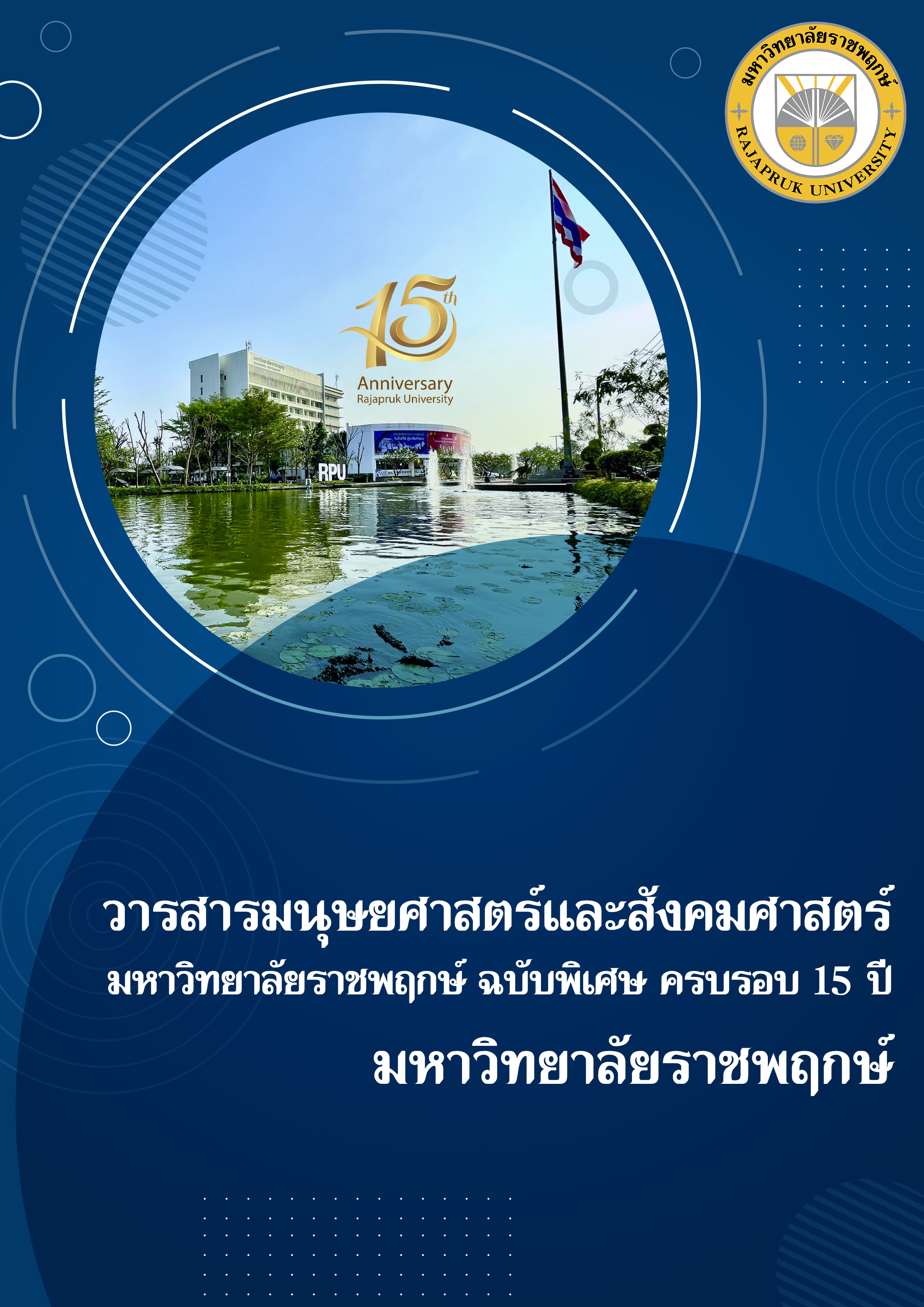Guidelines for Garbage Management: A Case Study of Bang Bon District Office, Bangkok Metropolis
Main Article Content
Abstract
The objectives of this research were to: 1) study solid waste management, 2) factors that are successful in solid waste management and, 3) ways to solve Solid Waste Management problems. This research is a qualitative research which is a study using case studies of Bang Bon District Office Bangkok. The instrument used in this research was an in-depth interview. There are 3 groups of key informants, consisting of 6 executives, a group of operational personnel of 6 people and a group of community leaders consisting of 12 people, a total of 24, and data analysis using content data analysis techniques. The results of the research are as follows: 1) Solid Waste Management has coordination between the responsible agencies to help supervise the goal of reducing waste due to the increasing amount of waste and There is a Solid Waste Management plan in each community, often having problems which must be handled correctly. 2) Factors that are successful in Solid Waste Management include Telling to raise awareness to know one's duties and behave in a responsible manner, helping to maintain cleanliness Have consciousness to act in the community such as helping to separate the waste from the source Littering into the bin Campaign to reduce waste to be less Some communities have public relations to organize activities to know how to reduce waste and separate waste for use in order to reduce destination waste. 3) The approach to solving the Solid Waste Management problem consists of district administrators wanting people to understand the reduction of waste. By providing knowledge training, people know how to separate waste from the source. As for the operational staff, they want to become familiar with the people in the community, to coordinate, clarify the waste separation and help solve problems. In collaboration with the villagers some communities want to increase the trash or to collect the trash faster, from 2 days a week to 4 days a week.
Article Details
References
กรมควบคุมมลพิษ. (2554). สถานการณ์และการจัดการปัญหามลพิษทางอากาศและเสียงปี 2554. กรมควบคุมมลพิษ กระทรวงทรัพยากรธรรมชาติและสิ่งแวดล้อม.
กระทรวงทรัพยากรธรรมชาติและสิ่งแวดล้อม. (2562). นโยบายและแผนการส่งเสริมและรักษาคุณภาพสิ่งแวดล้อมแห่งชาติ พ.ศ.2560-2579. ค้นเมื่อวันที่ 25 พฤษภาคม 2563, จากhttps://www.egov.go.th/th/government-agency/35/.
กาญจนา โคกทอง. (2553). แนวทางในการจัดการขยะมูลฝอยของประชาชนในเขตเทศบาลตำบลเนินกุ่ม อำเภอบางกระทุ่ม จังหวัดพิษณุโลก. การศึกษาอิสระรัฐประศาสนศาสตรมหาบัณฑิต วิทยาลัยการปกครองท้องถิ่น มหาวิทยาลัยขอนแก่น.
ธงชัย สันตินวงษ์. (2550). องค์การและการบริหาร. พิมพ์ครั้งที่ 9. กรุงเทพฯ: ไทยวัฒนาพานิช.
ปนัดดา วิเศษรจนา. (2559). การจัดการขยะมูลฝอยของสำนักงานเขตดินแดง กรุงเทพมหานคร.รัฐศาสตรมหาบัณฑิต คณะรัฐศาสตร์ มหาวิทยาลัยรามคำแหง.
พีรยา วัชโรทัย จำลอง โพธิ์บุญ และ จุฑารัตน์ ชมพันธุ์. (2557). การจัดการขยะขององค์กรปกครองส่วนท้องถิ่น: กรณีศึกษา เทศบาลตำบลเมืองแกลง จังหวัดระยอง. วารสารการจัดการสิ่งแวดล้อม. 10(2): 123-142.
สำนักงานเขตบางบอน. (2562). แผนปฏิบัติราชการประจำปี พ.ศ.2562. กรุงเทพฯ: สำนักงานเขตบางบอน.
สำนักงานเลขาธิการสภาผู้แทนราษฎร. (2562). การจัดการขยะมูลฝอยในประเทศไทย. กรุงเทพฯ: สำนักงานเลขาธิการสภาผู้แทนราษฎร.
เสนาะ ติเยาว์. (2543). หลักการบริหาร. กรุงเทพฯ: โรงพิมพ์มหาวิทยาลัยธรรมศาสตร์.
The Network. (2563). กรุงเทพฯ กับปัญหาขยะล้นเมือง. ค้นเมื่อวันที่ 25 พฤษภาคม 2563, จาก http://www.ngobiz.org/home/2019/กรุงเทพฯ กับปัญหาขยะล้นเมือง.


